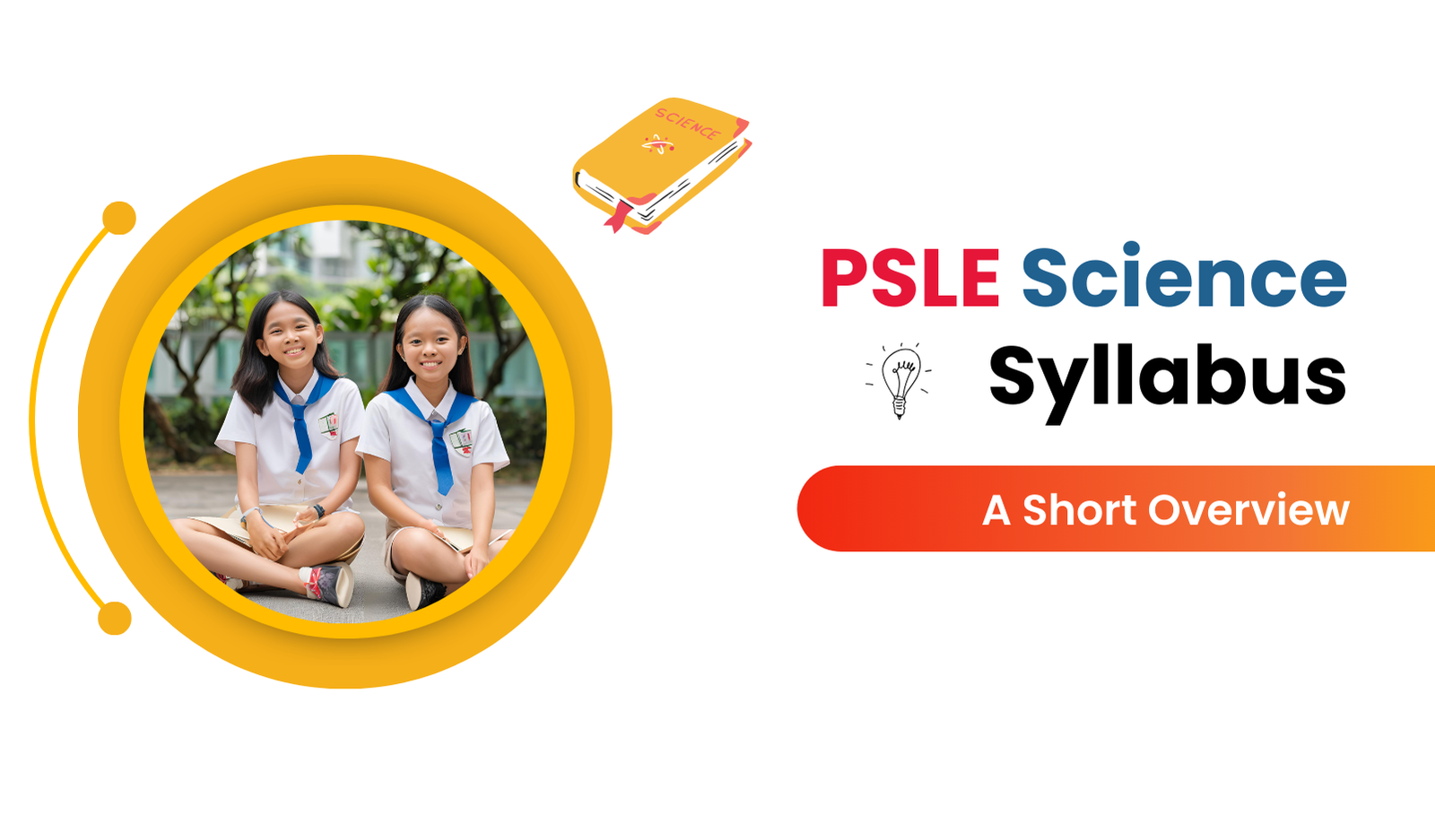As a parent, you are responsible for nurturing your child’s knowledge and growth. When the PSLE Science exam is gearing up, supporting children to master key topics and score high marks is more important. As Science covers a broader syllabus, your child might think it more challenging to focus on the key topics. But don’t worry! Here’s the survival guide to get your child prepped and ace the exam successfully.
PSLE Science Syllabus: A Short Overview
First of all, before you master key topics and exam tips, you have to get familiar with the PSLE Science syllabus. It covers the range of topics listed below.
- Diversity
- Cycles
- Systems
- Energy and
- Interactions
For a detailed overview of the PSLE Science syllabus, you can refer to the MOE Singapore official syllabus guide.
Key Topics to Focus on
Living Things
Living things are classified into different categories based on their habitat, movement and reproduction. Understanding the structure and function of cells and learning about plants and human systems.
Plant Systems
- Photosynthesis: You must know that plants’ food sources are sunlight, water, and carbon dioxide.
- Reproduction: Learn about the different parts of a plant and how it reproduces through seeds.
Human Systems
- Digestive System: Learn how the body digests food and absorbs the nutrients into the body.
- Circulatory System: Know how blood circulates through the heart, lungs and body, carrying oxygen and nutrients.
- Respiratory System: Understand the breathing mechanism and how it facilitates oxygen transfer into our blood.
Materials
Understanding the physical properties, states, and changes of various materials is important for mastering the key topic materials in PSLE.
Materials’ Properties:
Each material has unique properties that suit various uses. Here’s a quick overview of the materials:
- Conductivity
- Density
- Hardness
States of Matter:
There are three different types of states of matter, each with unique properties. They are as follows:
- Solid
- Liquid
- Gas
Changes in State:
Materials can change their states through physical processes. The transformation occurs due to changes in thermal energy and temperature. They are:
- Melting
- Boiling
- Freezing and
- Condensation
Combinations and Solutions:
Materials can be mixed to form combinations and solutions.
- Mixtures: Mixtures are two or more substances where each retains its own properties. For example, sand is mixed with pebbles.
- Solutions: Solutions is a type of mixture where one substance (the solute) is dissolved into another (the solvent). For example, sugar dissolved in water forms a sugar solution.
Separation of Mixtures:
Separating the mixtures can be performed using a different method. They are as follows:
- Filtering
- Evaporation and
- Magnetic separation
Energy and Force
- Energy: There are different types of energy, such as thermal energy, potential energy and kinetic energy. For example, when you switch on a fan, electrical energy is converted into kinetic energy.
- Force: Learn about different types of force, such as magnetic, gravity, and friction. Force can change the speed and direction of an object.
The Surroundings
This topic deals with ecology, biodiversity, conservation and sustainable development.
If you wish your child to get well-versed in these PSLE Science topics and understand the scientific concepts clearly, enrolling them in the best tuition centre is a great idea.
PSLE Science Exam Tips to Score High
Have you become familiar with the key topics for your PSLE Science exam preparation? Then, get a clear grasp of how to prepare for the exam efficiently to score high.
#1 Practise Regularly
Practice makes the man perfect. Of course, it’s a real fact. Preparing the key topics for the PSLE exam and practising past year question papers regularly makes you explore different types of questions. If you want to make the most out of your practice, here are the tips:
- Do past year’s papers to get familiar with the exam format. So, you can expect what questions will come and manage your time.
- Next, you can identify your weak areas and focus on them to score high.
#2 Understand the Concepts
Don’t just memorise the facts when preparing for the PSLE Science exam. Understanding the concepts helps you answer even the most challenging questions.
#3 Read the Questions Carefully
One of the biggest mistakes most children make in the PSLE Science Exam is answering the questions without reading the questions and instructions carefully. So, make sure your child pays close attention to the questions to answer correctly.
#4 Don’t Left Any Questions Unanswered
Whether the question is based on calculation or logical reasoning, always try to solve it, even if you are unsure. Writing out something is better than leaving it blank, and sometimes, you may get marks for the partially correct answer.
#5 Manage Your Time Wisely
Finally, practice managing your time wisely. Allot specific time for each section, and when you are stuck with an answer, move on and come back to it later. First, it is better to answer familiar questions.
On the other hand, managing your time will save you time to revise your answers and correct the careless mistakes you have made.
Final Thoughts
Your PSLE Science success starts here! Science is all about curiosity. The more you enjoy learning, the more you wonder about the world. Don’t just study Science – experience it! Go outside, explore nature, ask questions and conduct experiments. The more engaged you are, the easier it will be to master the PSLE science exam.
Gear up for your PSLE Science exam with the best tuition centre – Explico. Good Luck!


